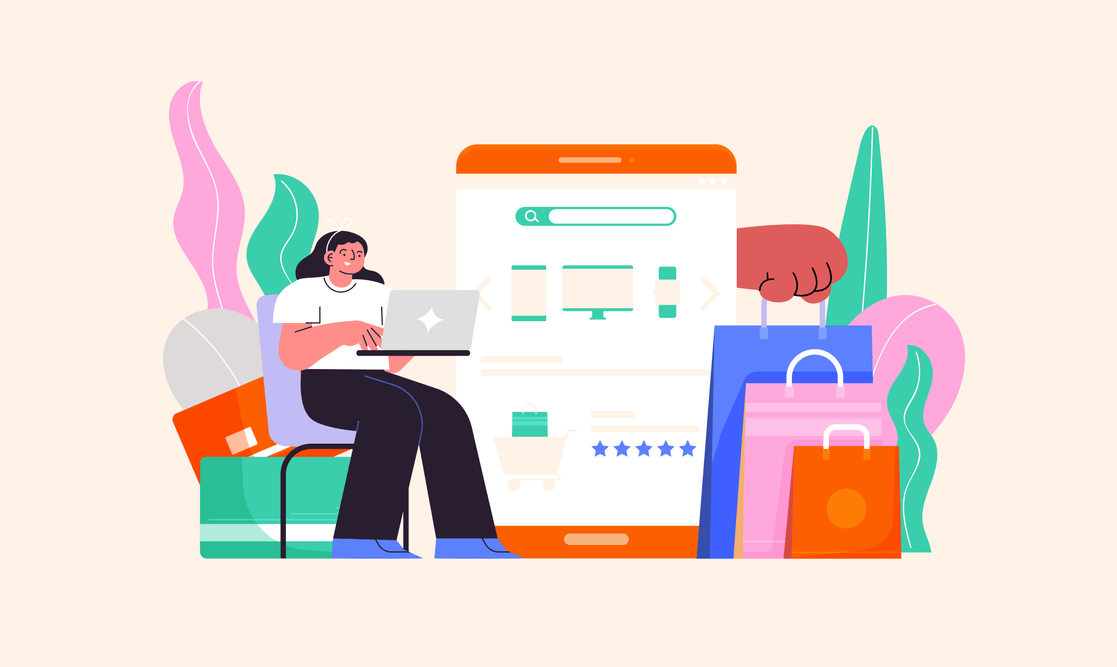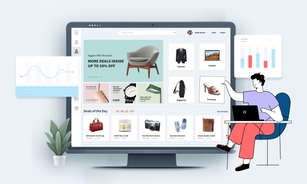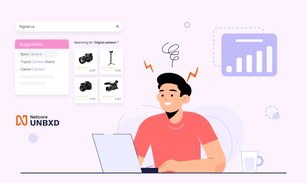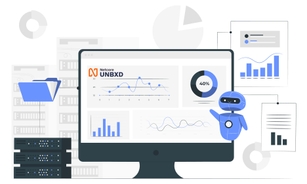- ProductsSearch and BrowseRecommendationsCustomer Engagement
Navigating the personalization maze: Picking the right tech partner for your ecommerce vision

You're browsing an online store, and it feels like the website knows you inside and out. It welcomes you with products you've been eyeing, plus a few surprises—items you didn't even know you were looking for but now can't resist. It's like shopping with a personal assistant who always gets it right.
This level of personalization isn’t just a nice-to-have—it’s becoming a standard expectation. Studies show that 47% to 76% of consumers expect personalized interactions with brands. When done right, personalization can boost revenue by 10% or more.
But here’s the catch: implementing an ecommerce personalization platform isn’t as simple as flipping a switch. It’s a game-changing move that demands strategy, the right tools, and thorough planning.
Confused? Don’t worry! Here's a checklist to make sure you’re ready to make a real impact. Get this right, and you’ll be set to wow your customers, boost conversions, and take your ecommerce business to the next level.
Start with strategy: Is personalization right for your business?
Before you dive into ecommerce personalization, it's important to ask one crucial question: Does your business really need it? Personalization isn't a universal solution—it’s a powerful tool, but only when it's the right fit for your brand and customers.
Here's what to consider:
Customer expectations: If your audience expects tailored experiences—like product recommendations or personalized offers—personalization could be a great fit. It can enhance customer engagement and loyalty.
Product range: If you offer a broad selection of low-cost items, personalization may not have as big of an impact. Businesses with more niche products or higher-value items tend to see more benefits.
Data quality: Personalization thrives on accurate customer data. If you don’t have solid data collection and analysis processes in place, it might be worth focusing on improving that first.
Business goals: If your goal is to foster deeper customer relationships, increase conversions, and improve the shopping experience, personalization could be the key. But if it doesn’t align with your current objectives, it’s okay to wait.
Preparing for personalization: Steps to success
Now that you’ve decided personalization is right for your business, it’s time to carefully select the vendor for your requirements since choosing the right personalization software is crucial to your success.
Let’s navigate all the intricacies confidently:
Understanding your needs first: Before evaluating vendors, assess your business needs. Are you tackling cart abandonment, boosting customer lifetime value, or improving product recommendations? Let your challenges and goals guide your technology choice.
Essential features to consider: Choose a solution with strong customer data management, real-time personalization, cross-channel support, advanced analytics, A/B testing, and user-friendly segmentation tools.

Integration capabilities matter: Your personalization needs to work seamlessly with your existing tech stack – ecommerce platform, CRM, marketing automation tools, and analytics software. Ask potential vendors about their integration capabilities and any existing partnerships with your current technology providers.
Scalability and performance: Consider factors like the number of customer profiles it can handle, processing speed for real-time personalization, and the ability to handle increasing traffic volumes. The last thing you want is to outgrow your solution just as it starts delivering results.
Data privacy and security: Look for vendors who are transparent about their data handling practices and comply with relevant regulations. They should offer robust security features and regular security updates to protect your customers' information.
Support and implementation: Evaluate the level of support each vendor provides during setup and beyond. Do they offer dedicated account managers? What about technical support? Look for partners who provide comprehensive documentation, training resources, and responsive customer service.
Cost considerations: Look beyond the basic subscription cost and understand all potential expenses: implementation fees, training costs, customization charges, and any additional features you might need. Some vendors charge based on data volume or number of personalized interactions, while others offer flat-rate pricing.
Why choose Netcore Unbxd for personalization?
Netcore Unbxd stands out as a top choice for brands seeking to enhance their ecommerce personalization. With its advanced features and robust solutions, it offers a powerful platform for delivering tailored experiences that drive engagement and conversions.
Dynamic personalization: Netcore Unbxd uses AI algorithms to analyze shopper behavior, including browsing history and purchase patterns. This allows for dynamic search results and product recommendations tailored to individual preferences, boosting conversion rates.
In-session adaptation: The platform adapts in real-time to a shopper’s actions, learning from interactions like clicks and cart additions. This ensures product recommendations align with the shopper’s immediate interests, enhancing the user experience.
Visual workbench: Netcore Unbxd offers an intuitive interface that lets brands create and refine personalization strategies without coding. Marketers can quickly test and adjust their approaches based on performance metrics and shopper segments.
Automated search and merchandising: The platform includes automated search and merchandising features, allowing brands to manage product displays and marketing campaigns efficiently. With A/B testing, analytics, and reporting, businesses can continuously optimize strategies using data-driven insights.
Proven success with global brands: Netcore Unbxd has a strong track record of helping global brands elevate their ecommerce personalization. For example, Jerome’s Furniture saw a significant boost in conversions by using personalized search recommendations powered by over 50 self-optimizing AI/ML models.
Remember, choosing a personalization partner is about more than just technology – it's about finding a company that understands your business goals and can help you achieve them.
Click here to explore how Netcore Unbxd personalization solution can pay dividends in the form of smoother implementation, better results, and a stronger foundation for your personalization efforts.


